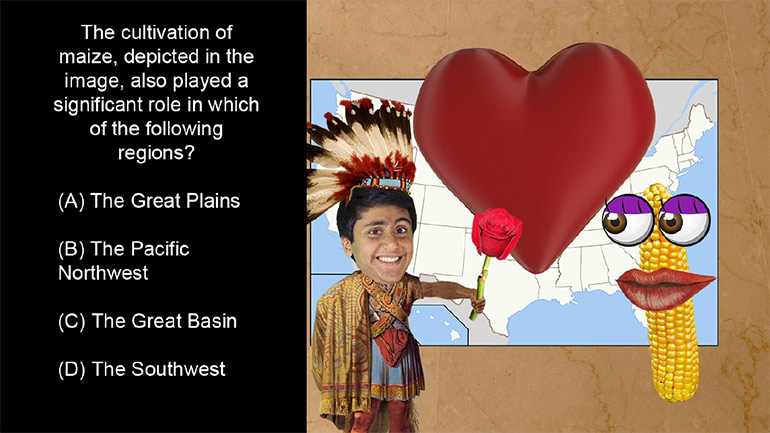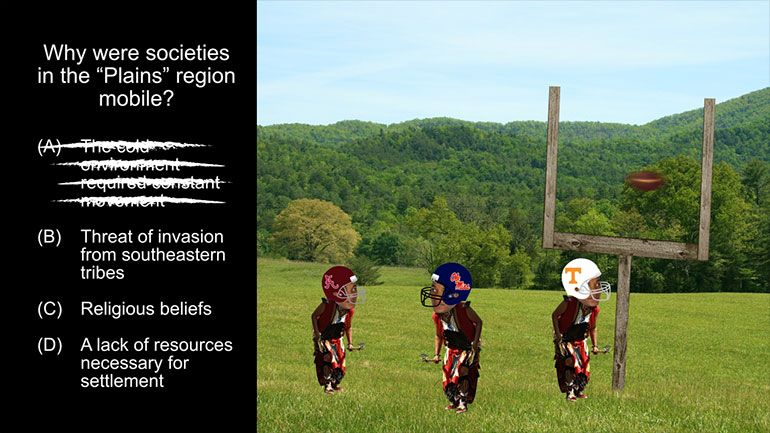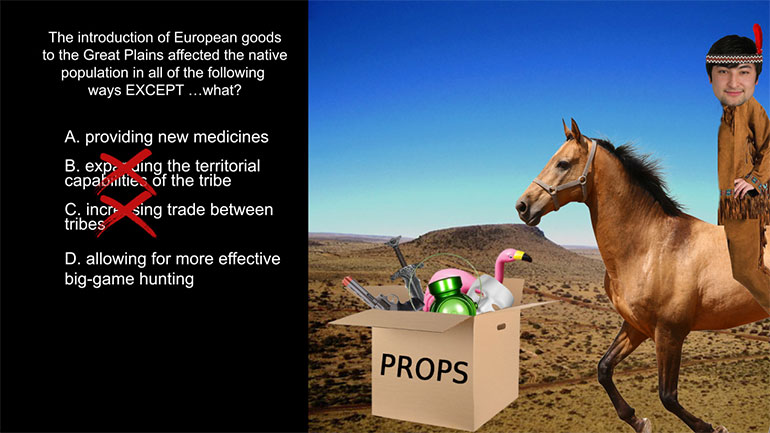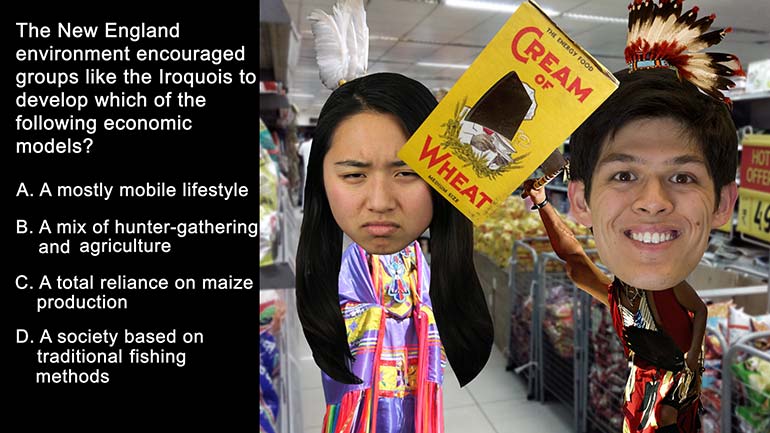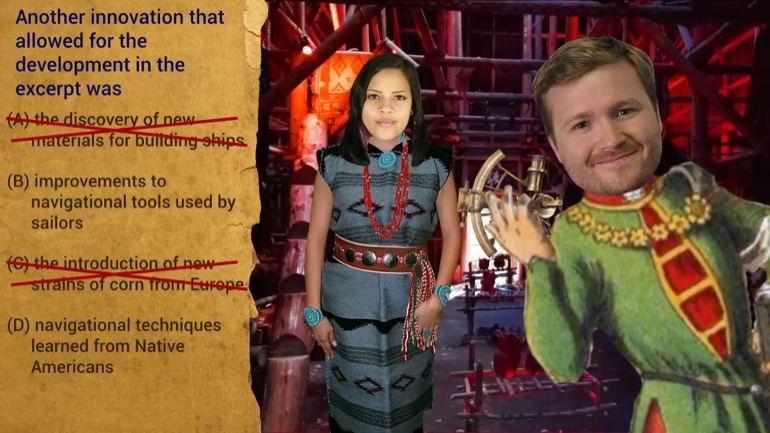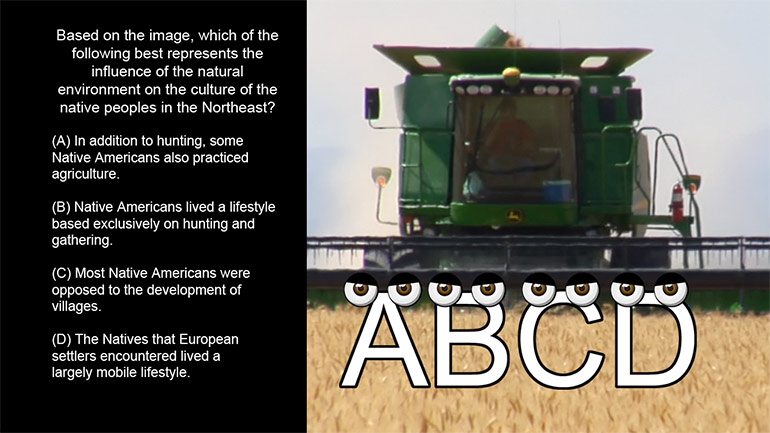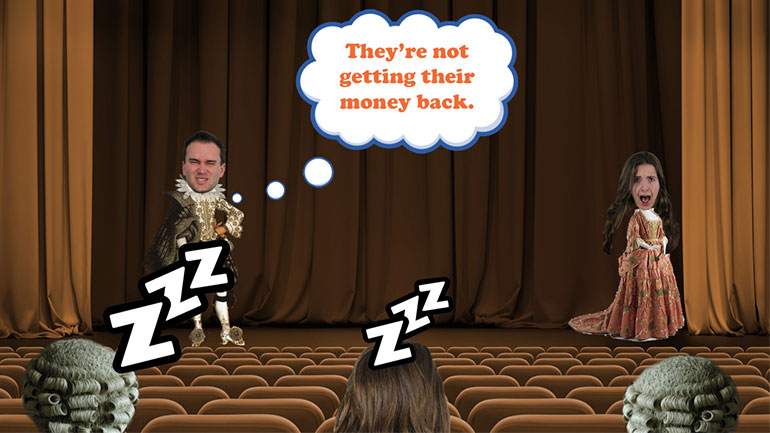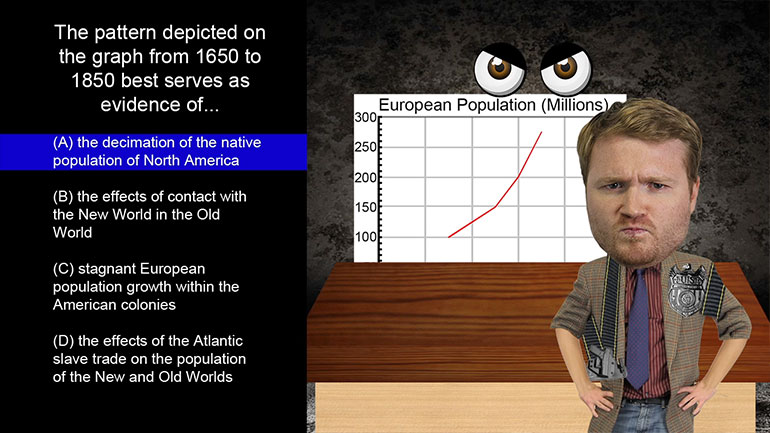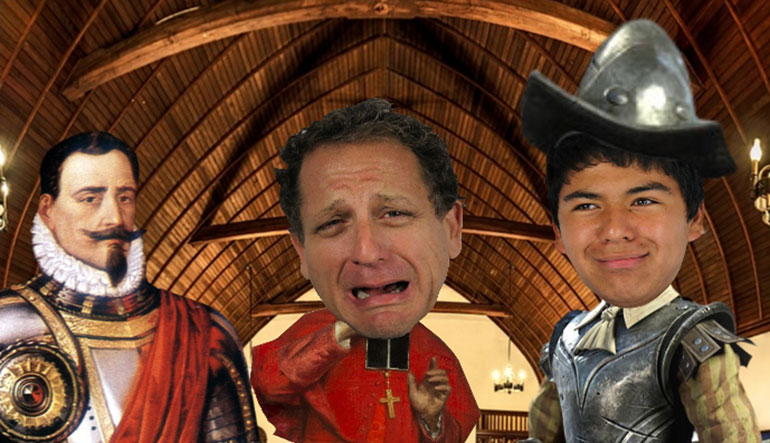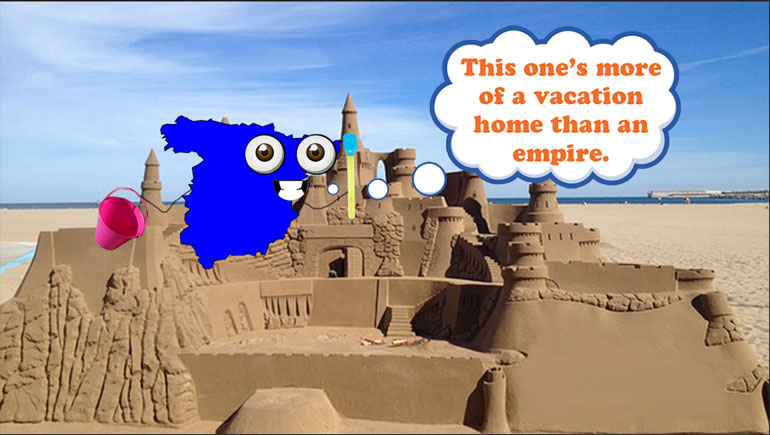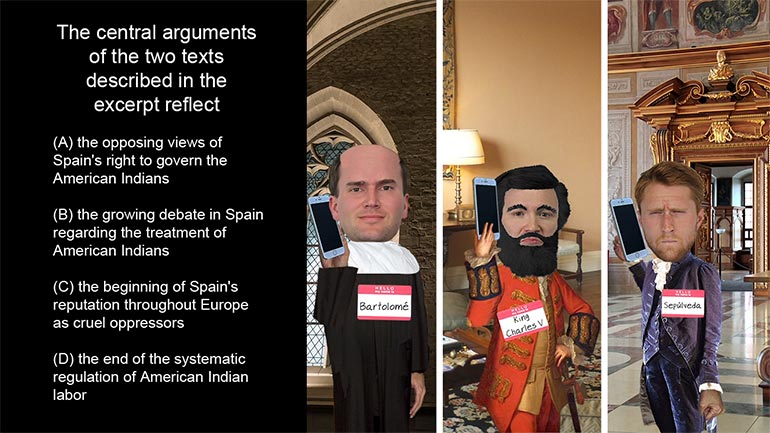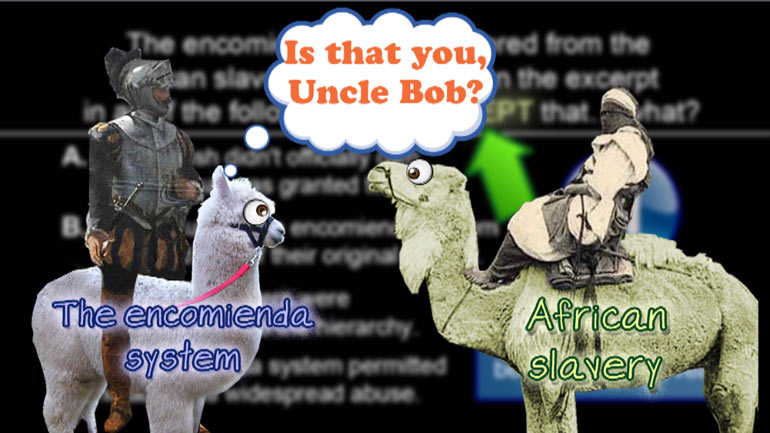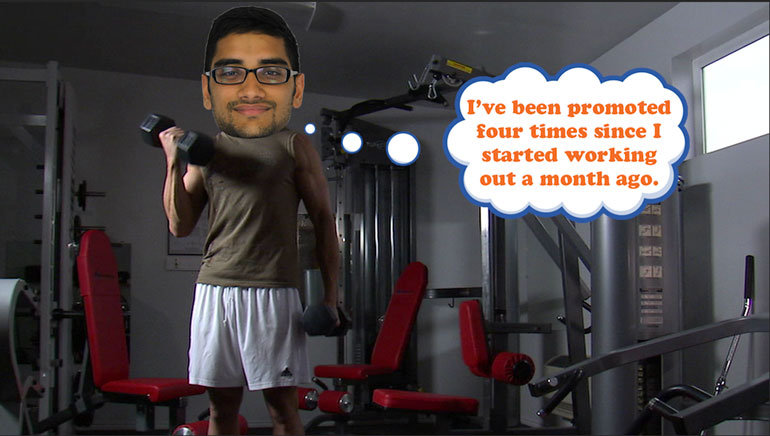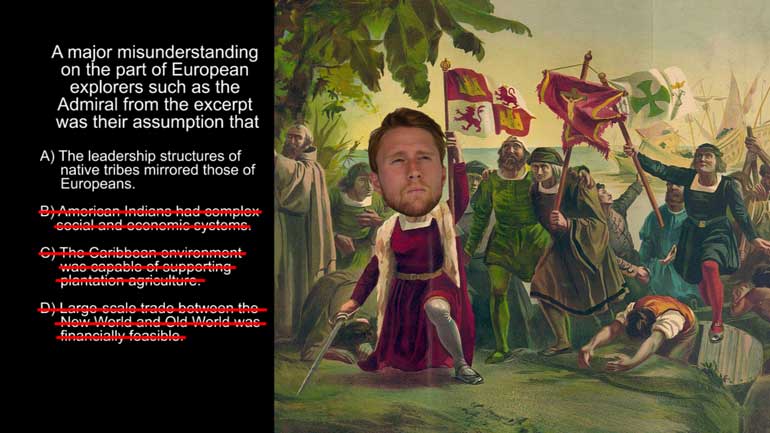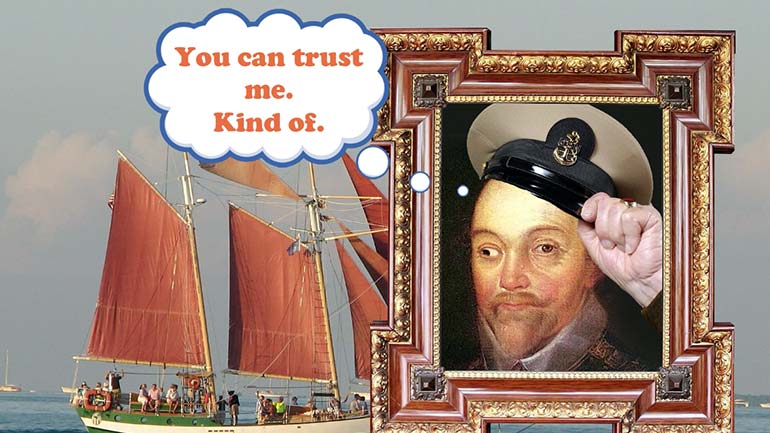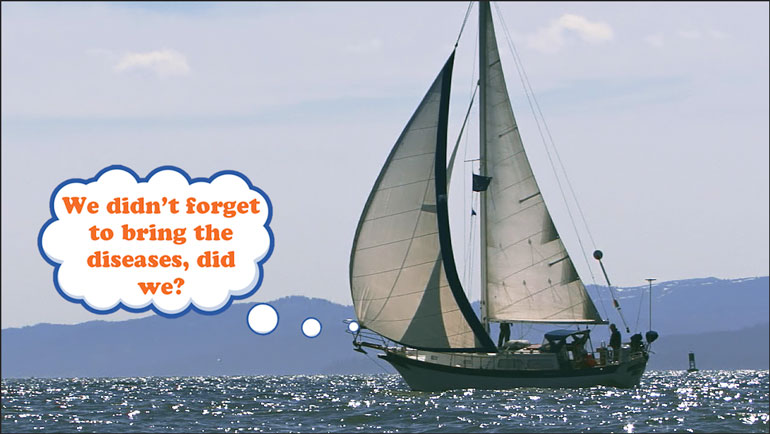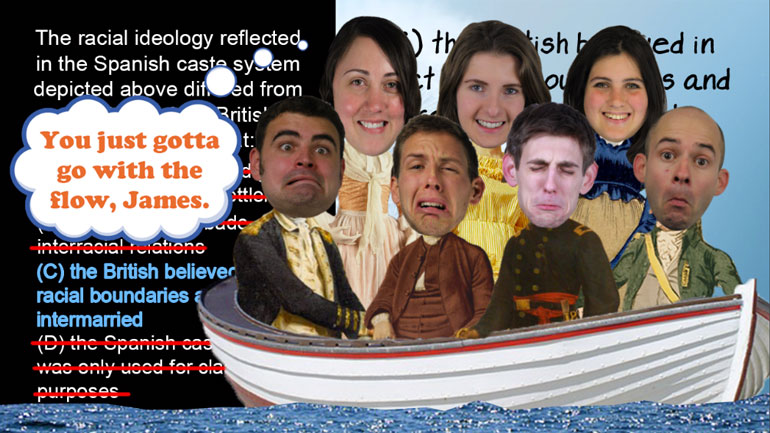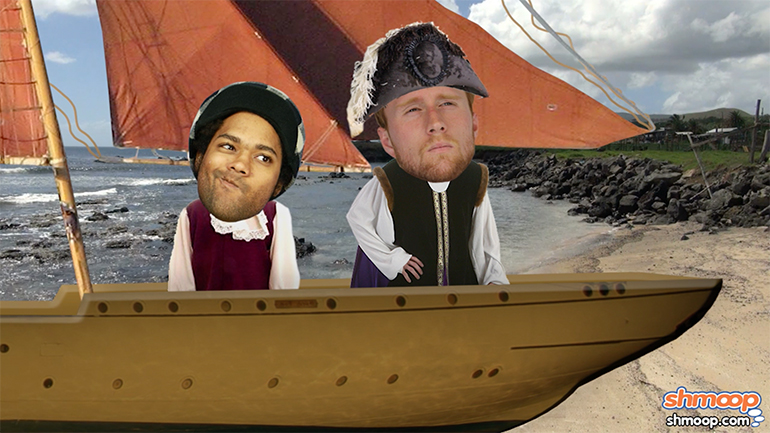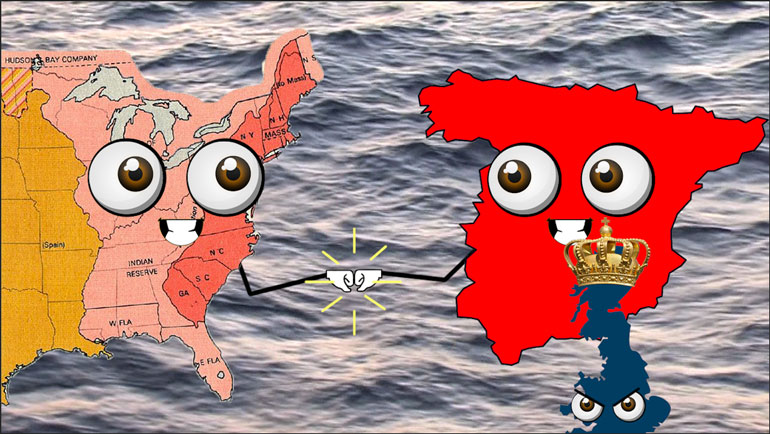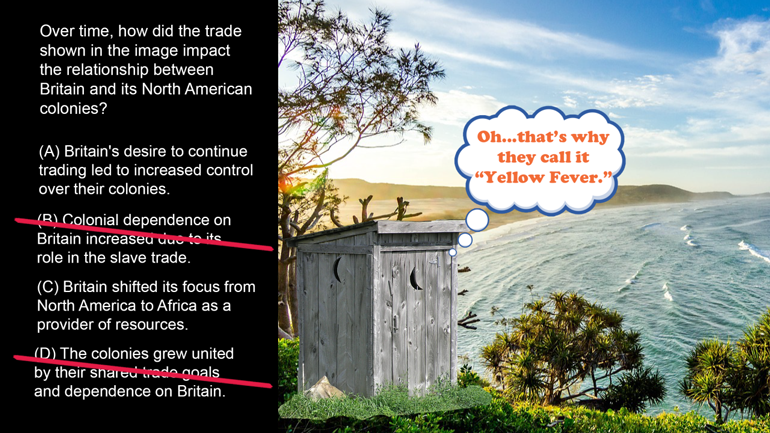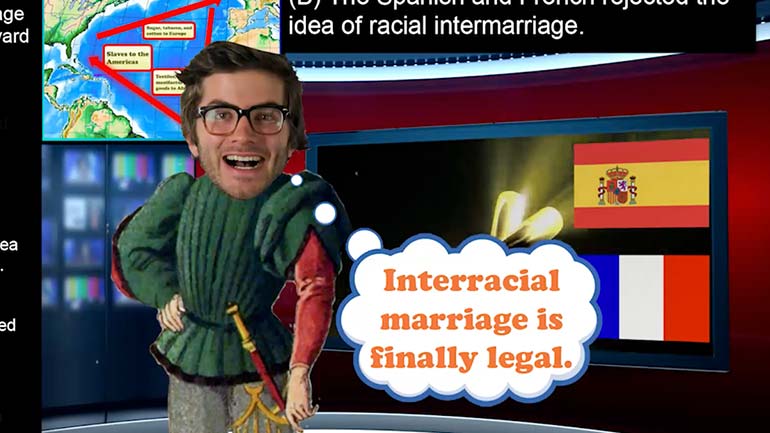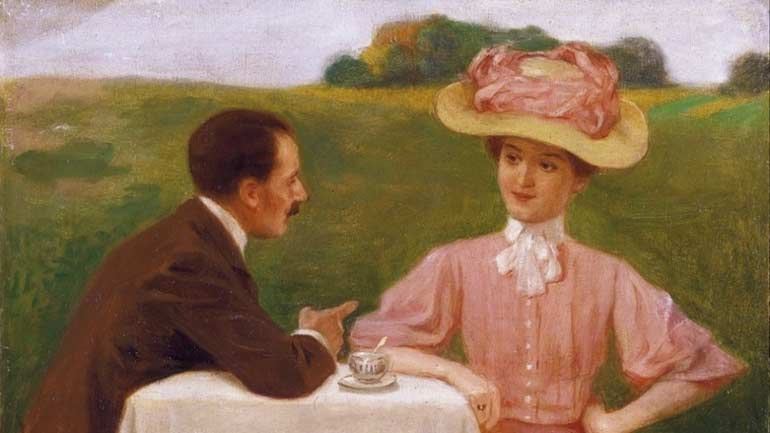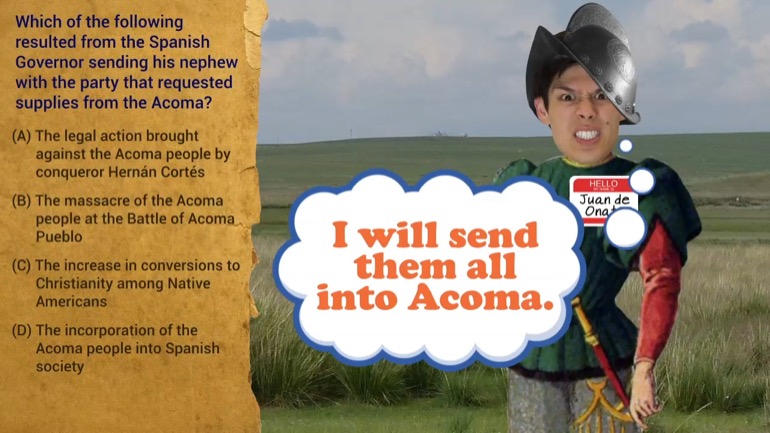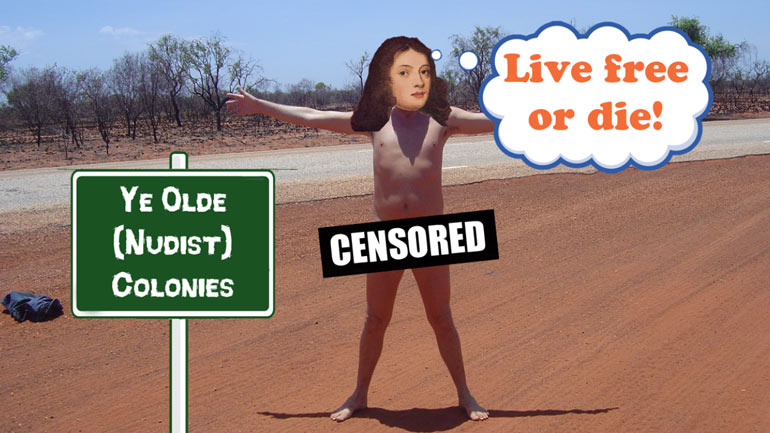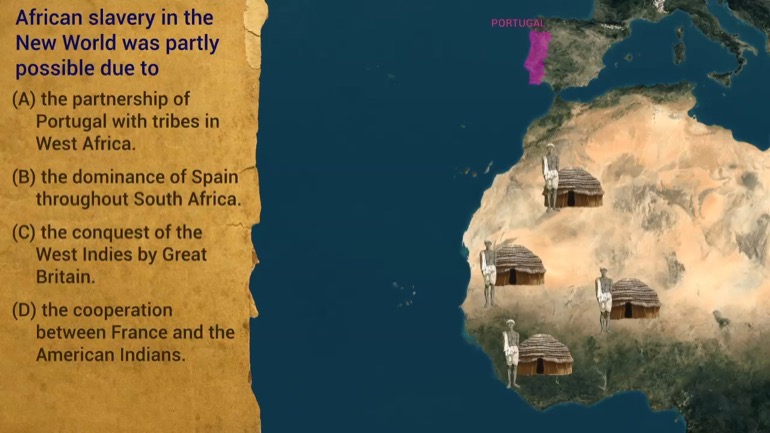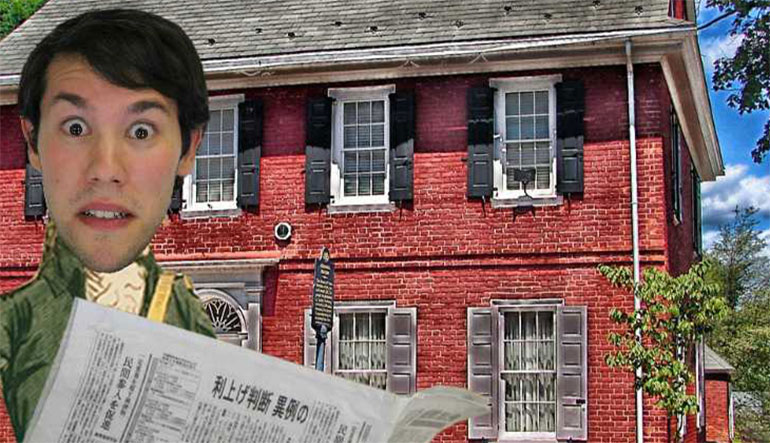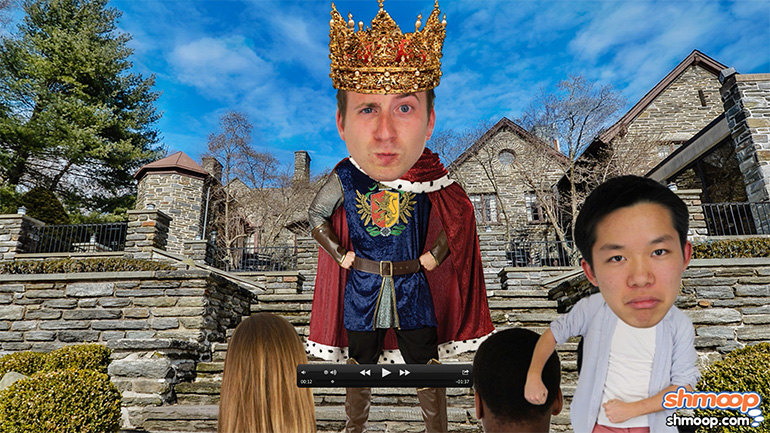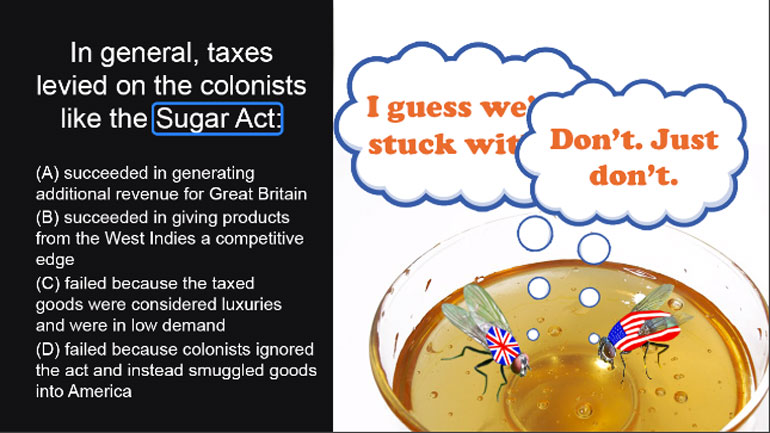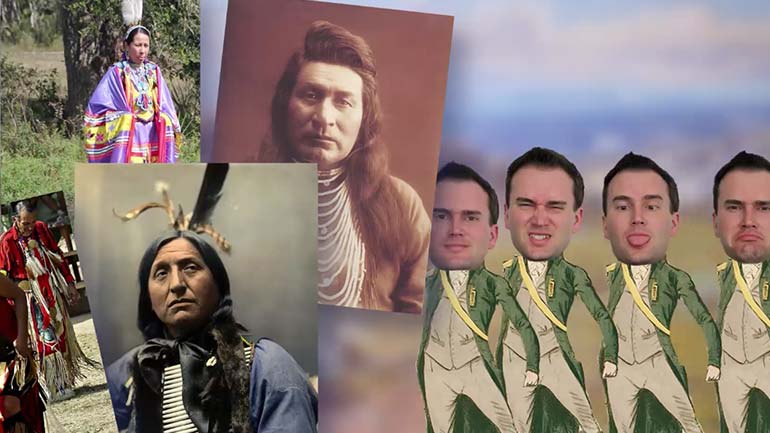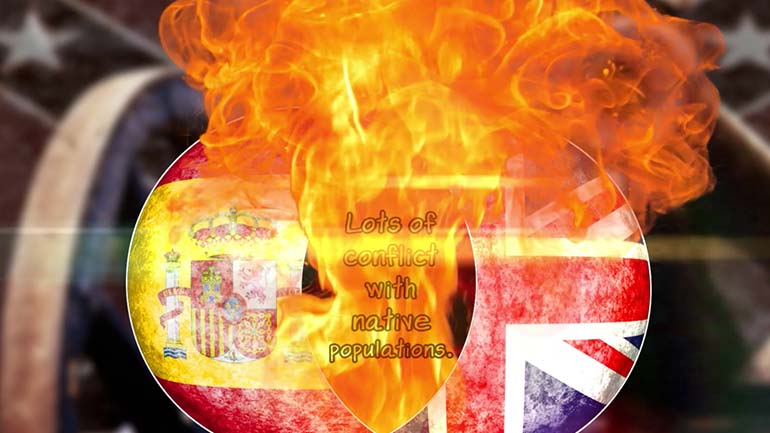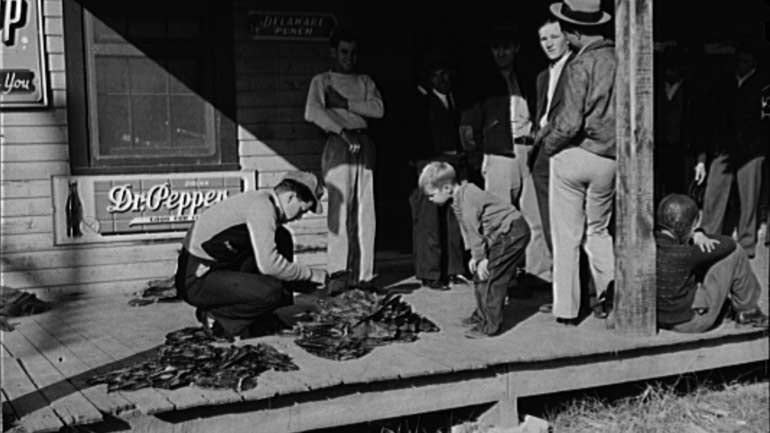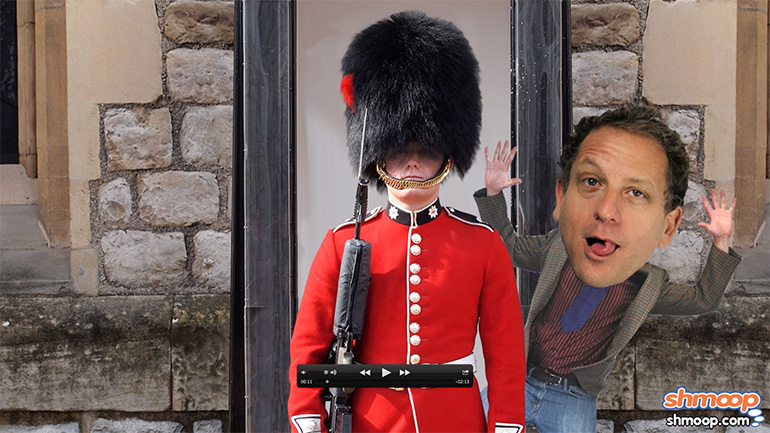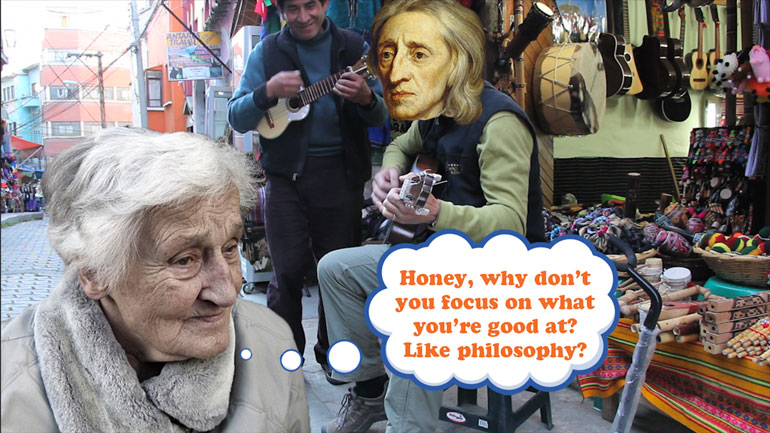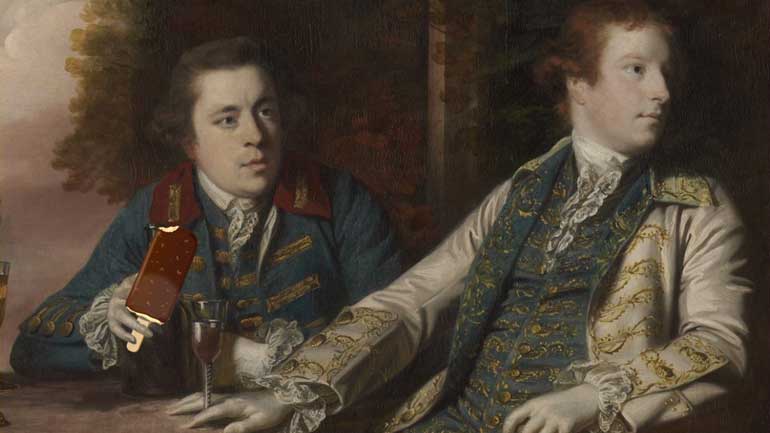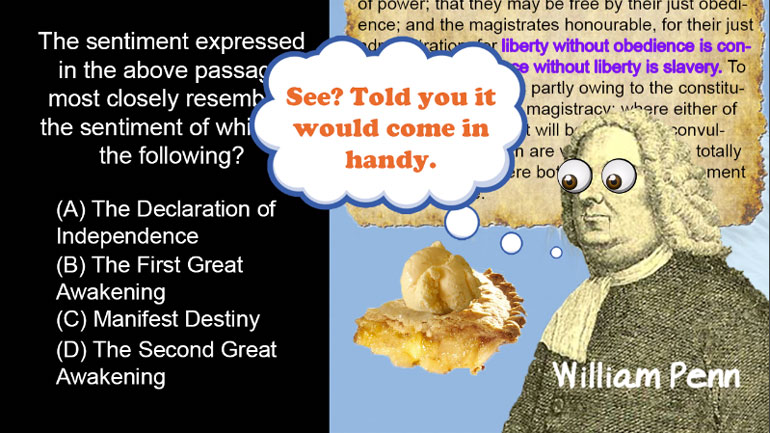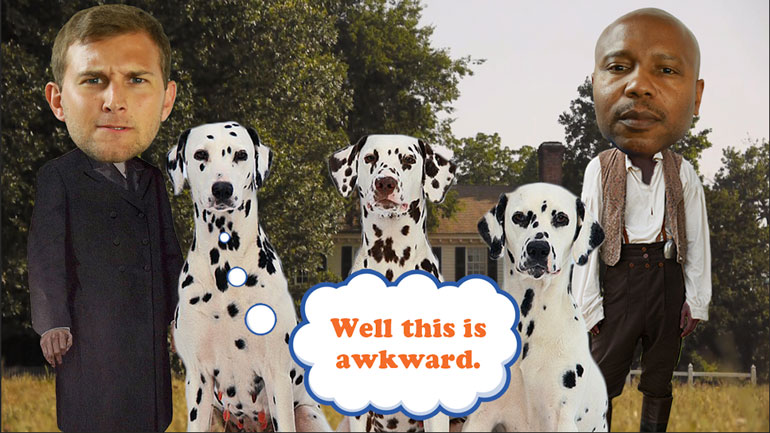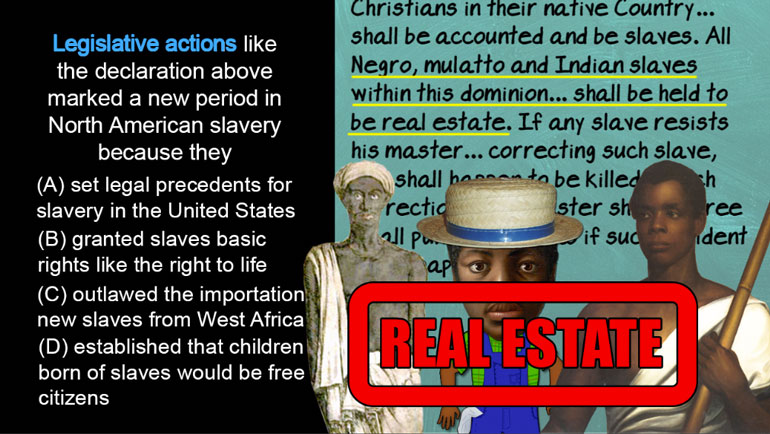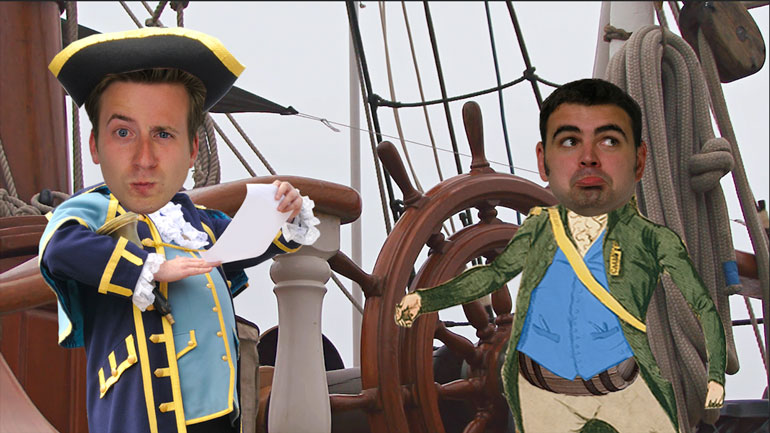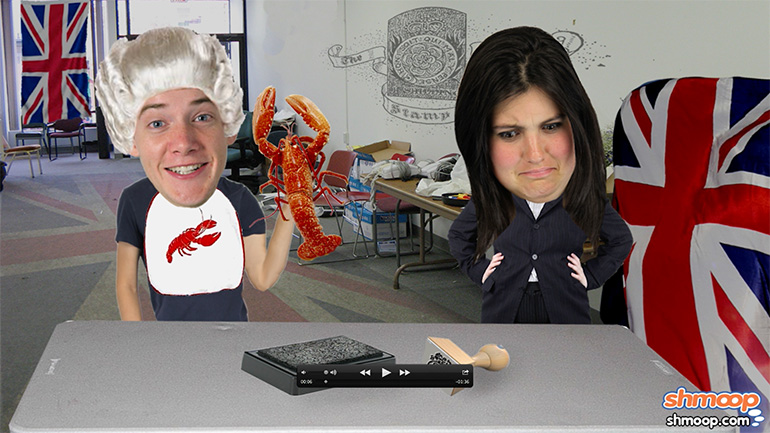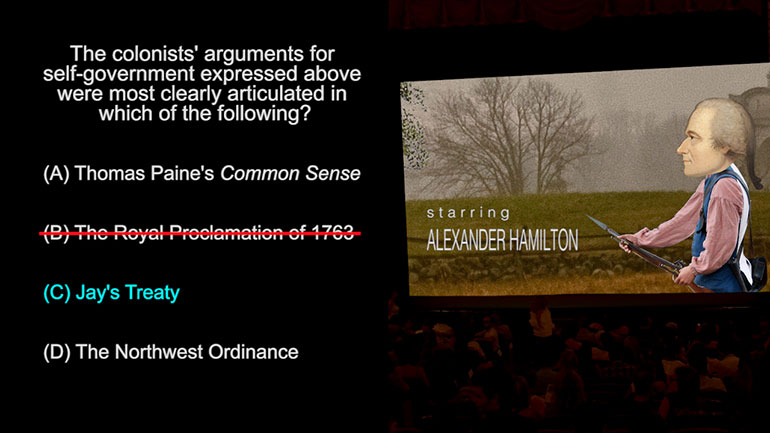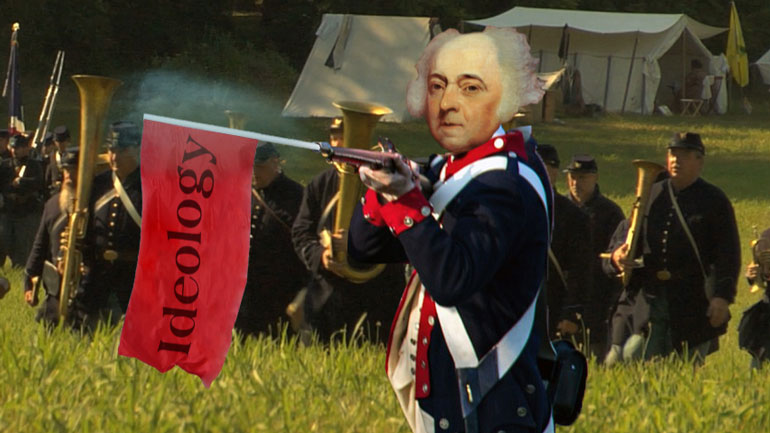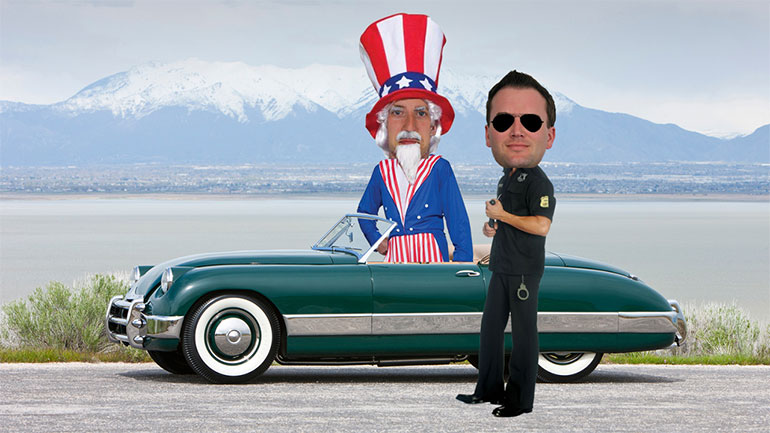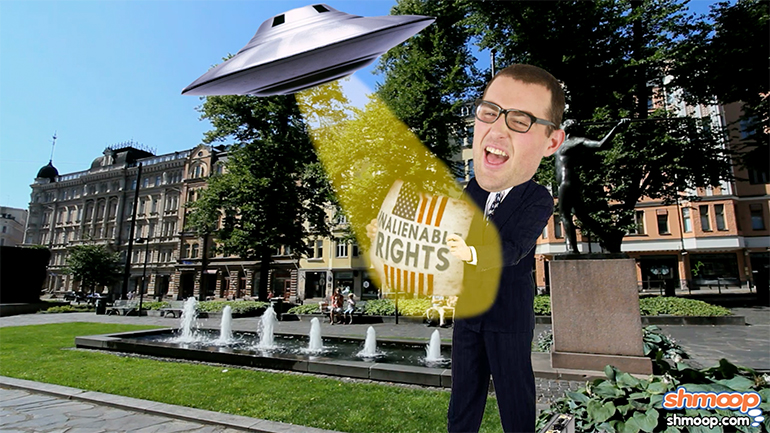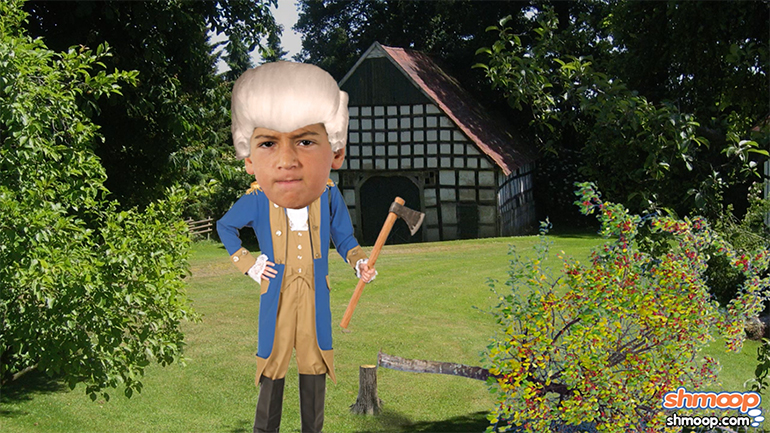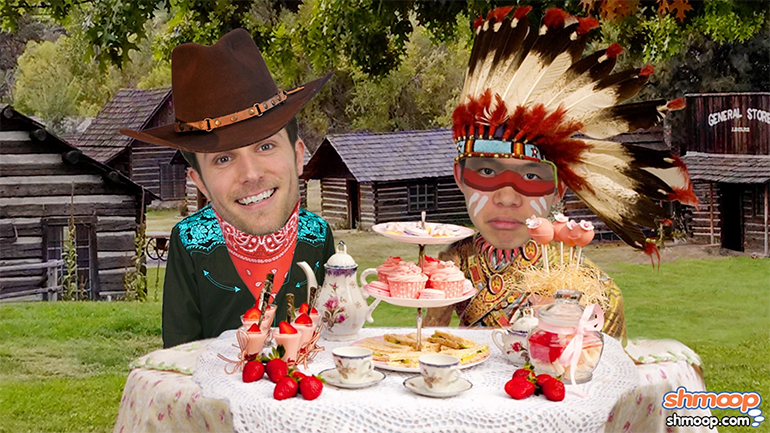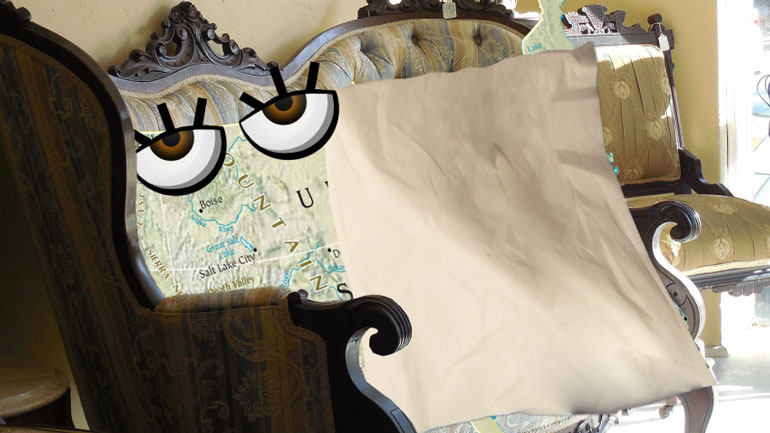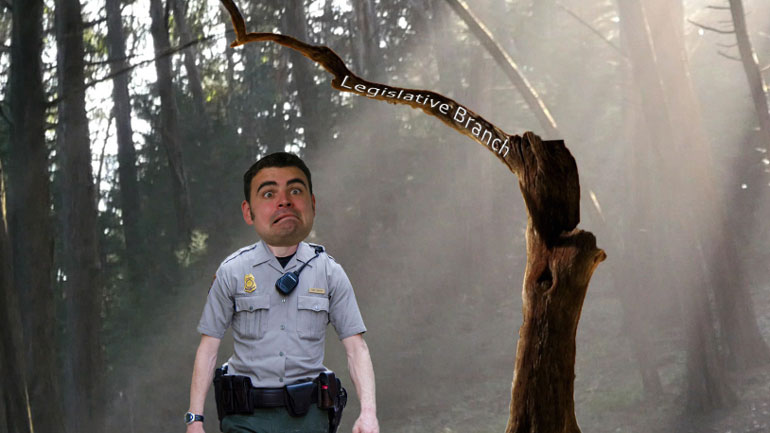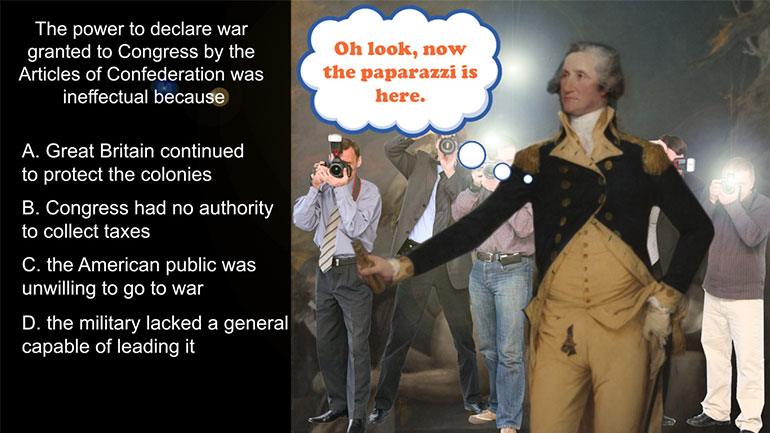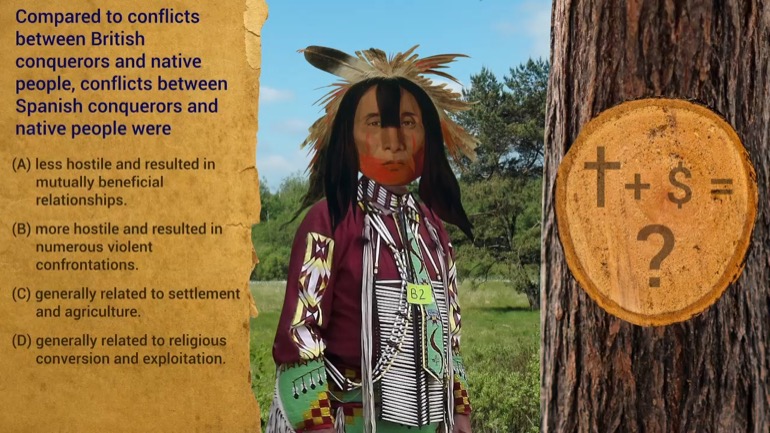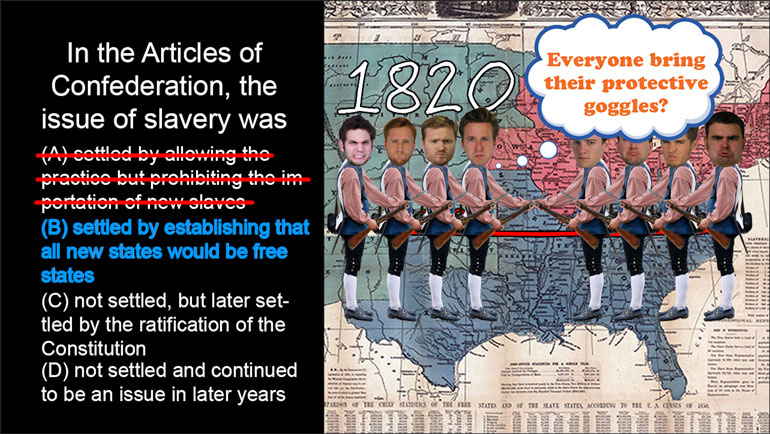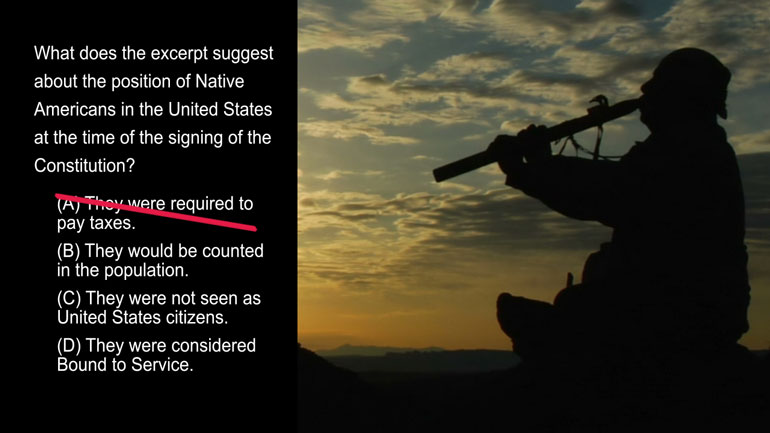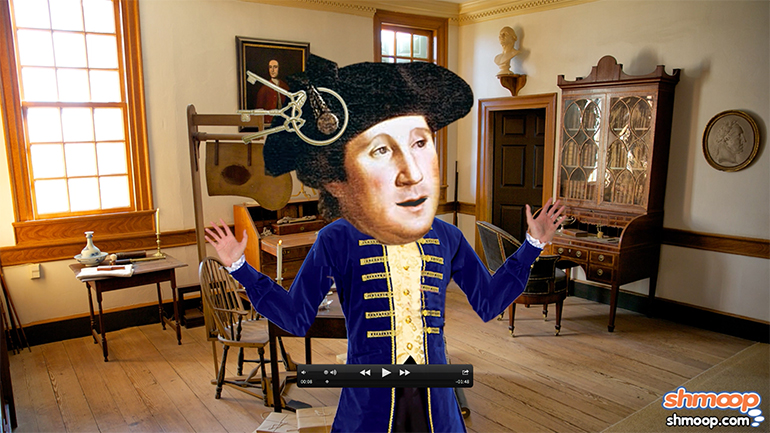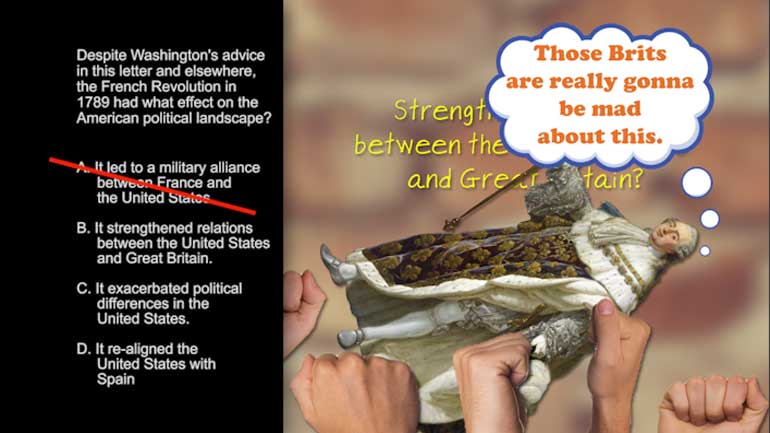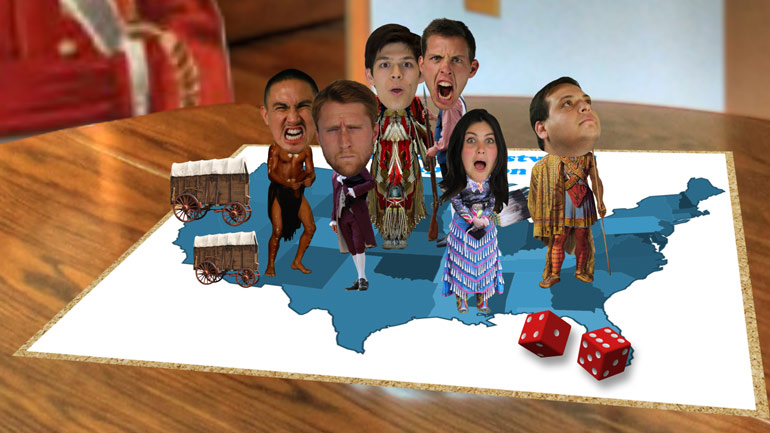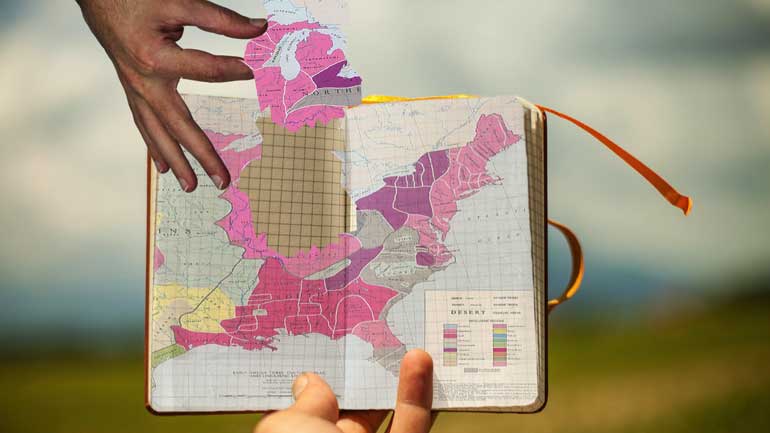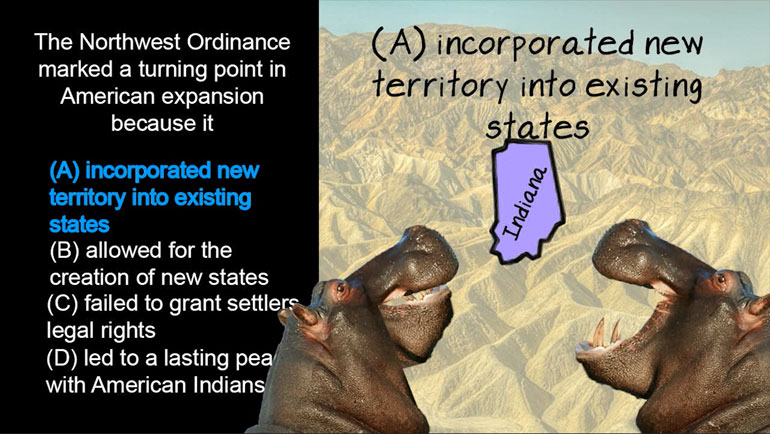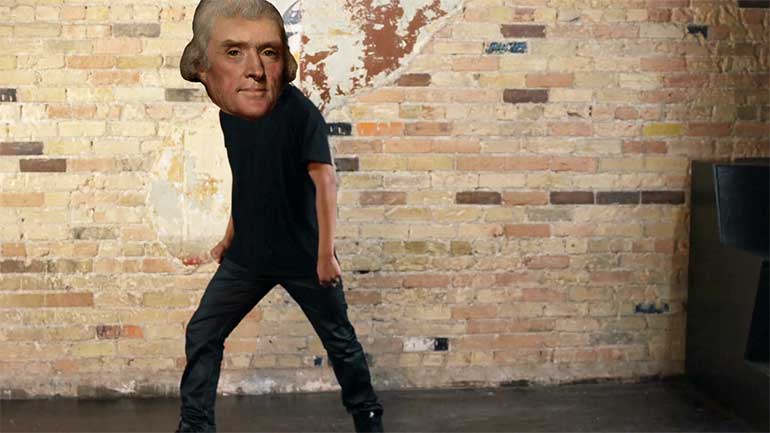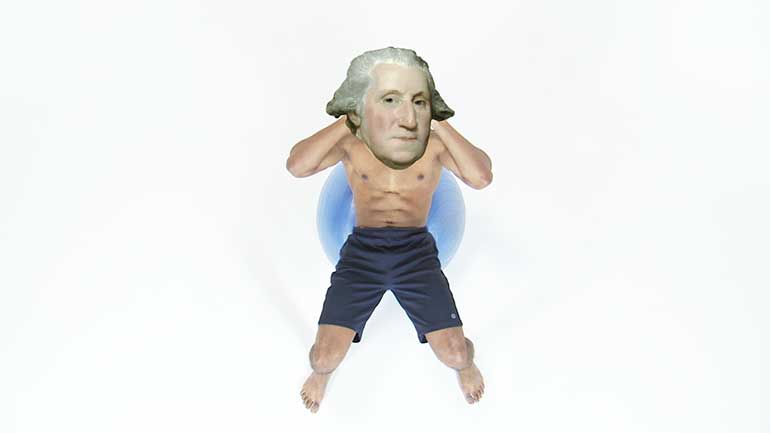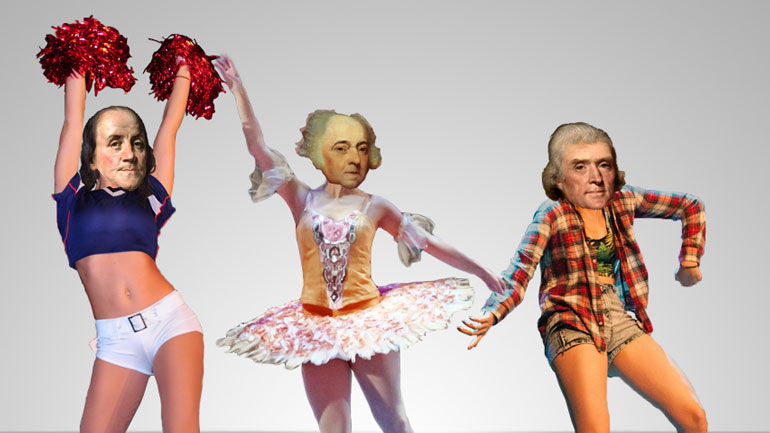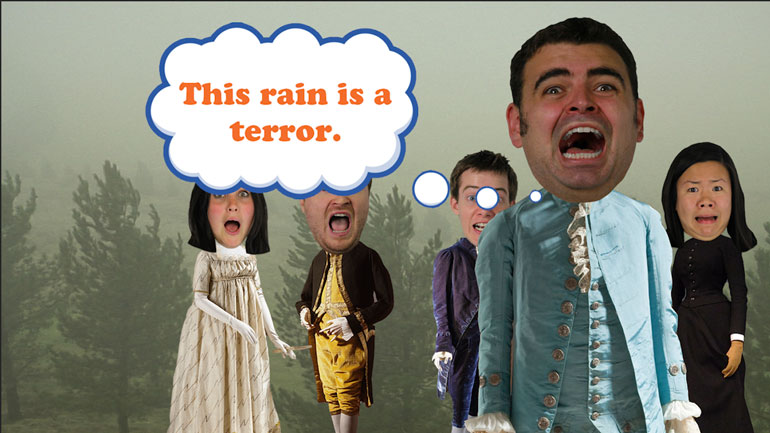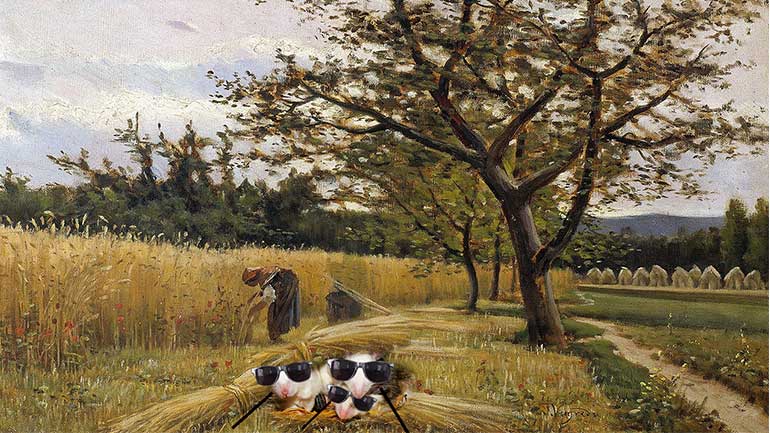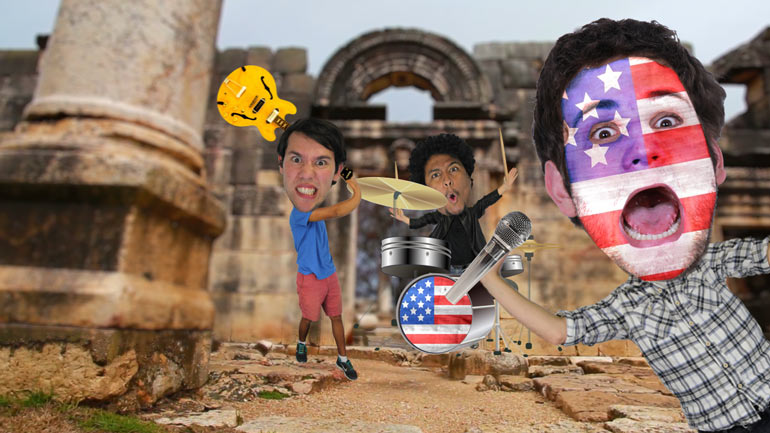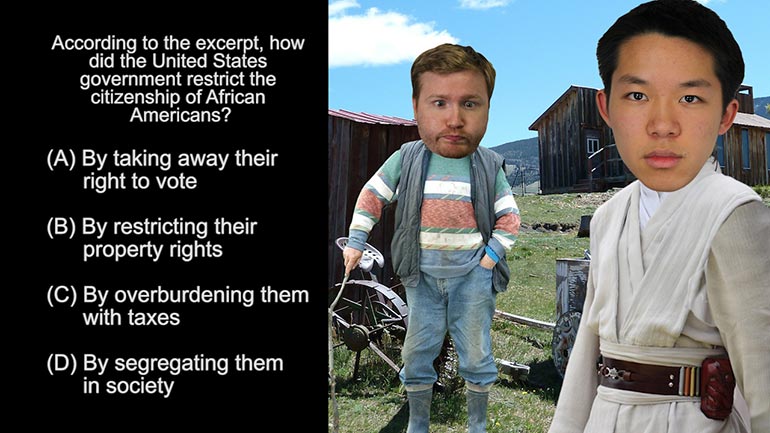ShmoopTube
Where Monty Python meets your 10th grade teacher.
Search Thousands of Shmoop Videos
AP U.S. History Videos 273 videos
Today's lesson: The Civil War. A war may be civil, but it's never pretty. Well, aside from the Pretty Pink Fairy Wars of '93...but no one seems to...
AP U.S. History Period 1: 1491-1607 Drill 3, Problem 2. The cultivation of maize, depicted in the image, also played a significant role in which of...
AP U.S. History Exam 2.2. Prior to European contact, why was it necessary for the societies of the "Plains" region on the map to live a mobile life...
AP U.S. History Diagnostic 8 183 Views
Share It!
Description:
AP U.S. History Diagnostic 8. How did the Missouri Compromise temporarily ease tensions over slavery?
Transcript
- 00:00
[ musical flourish ]
- 00:03
And here's your Shmoop du jour, brought to you by the Missouri Compromise,
- 00:07
the decision-making process for choosing what
- 00:09
kind of music to listen to while on the Oregon trail.
- 00:12
Cha-ching.
Full Transcript
- 00:13
All right, how did the Missouri Compromise temporarily ease tensions over slavery?
- 00:18
And here are the potential answers.
- 00:19
[ buzzing ] [ mumbling ]
- 00:22
[ mumbling continues ] Hmm.
- 00:25
Well, in the first half of the 19th century, tensions
- 00:28
were mighty high regarding what the country would do
- 00:31
with the new territories acquired through the Louisiana Purchase.
- 00:35
Let's see what the Missouri Compromise did to keep both sides at bay
- 00:39
for just a little while longer.
- 00:41
Did the Missouri Compromise ease tensions over slavery
- 00:44
A - by putting an end to the Atlantic slave trade?
- 00:48
Well, the Missouri Compromise came about in 1820.
- 00:50
The Atlantic slave trade ended with an 1807
- 00:53
Act of Congress. So A kind of misses the boat by at least 13 years.
- 00:57
Would the Missouri Compromise have soothed
- 00:59
political fears B - by establishing a clear line
- 01:02
between the North and South?
- 01:04
Well, the Compromise did include a proviso to divide
- 01:07
the Louisiana Purchase territories between slave
- 01:10
and free at a specific parallel.
- 01:13
Like, here.
- 01:14
But that line didn't extend throughout the entire
- 01:17
North and South. So cross B off the list.
- 01:20
Could the Compromise have helped
- 01:21
D - by allowing citizens to vote on the legality of slavery?
- 01:26
Ah, now we're too early.
- 01:28
The 1854 Kansas-Nebraska Act allowed citizens
- 01:32
to vote on the legality of slavery and, boy, did those polls pack a punch.
- 01:36
So it's not D, either.
- 01:38
Which means that the Missouri Compromise temporarily
- 01:41
eased tensions over slavery C -
- 01:44
by creating a balance between the number of free
- 01:47
and slave states.
- 01:49
When all that territory was added to the U.S.
- 01:51
in the Louisiana Purchase,
- 01:53
both sides were afraid of the other gaining
- 01:55
too many votes as new states joined the Union.
- 01:58
In the Missouri Compromise, Missouri was added as
- 02:01
a slave state and Maine was added as free,
- 02:04
which kept both sides with an equal number of states.
- 02:07
So the correct answer is C.
- 02:09
Of course, this Compromise would soon dissolve,
- 02:11
dragging the country into the Civil War.
- 02:13
It wasn't even fun while it lasted.
- 02:15
[ explosion ]
Related Videos
Ever heard of a "living document"? They eat and breathe just like the rest of us! They even walk around on their own two legs. Okay, fine—maybe t...
If the Puritans had gotten their way, religion would play a much larger role in lawmaking these days. Want to know more? Watch the video for all th...
What happened between the creation of the Articles of Confederation and the ratification of the current U.S. Constitution? This video analyzes the...
The Modernists thought the world had a lot of problems, and they were intent on fixing them—or at least talking about fixing them. Unfortunately,...
This video explains Federalism and the quest for a fair balance between state and national power. It covers the progression and compromises of Fede...

